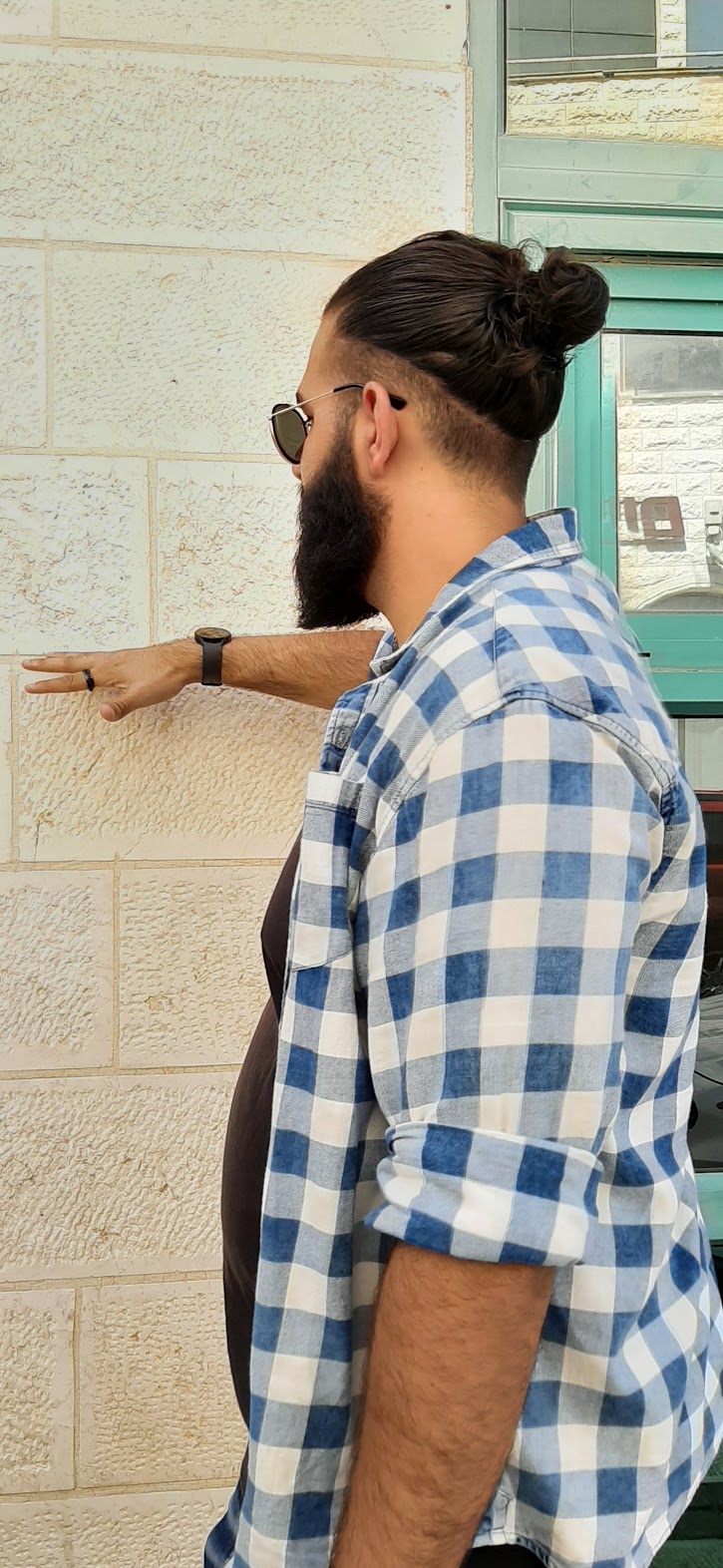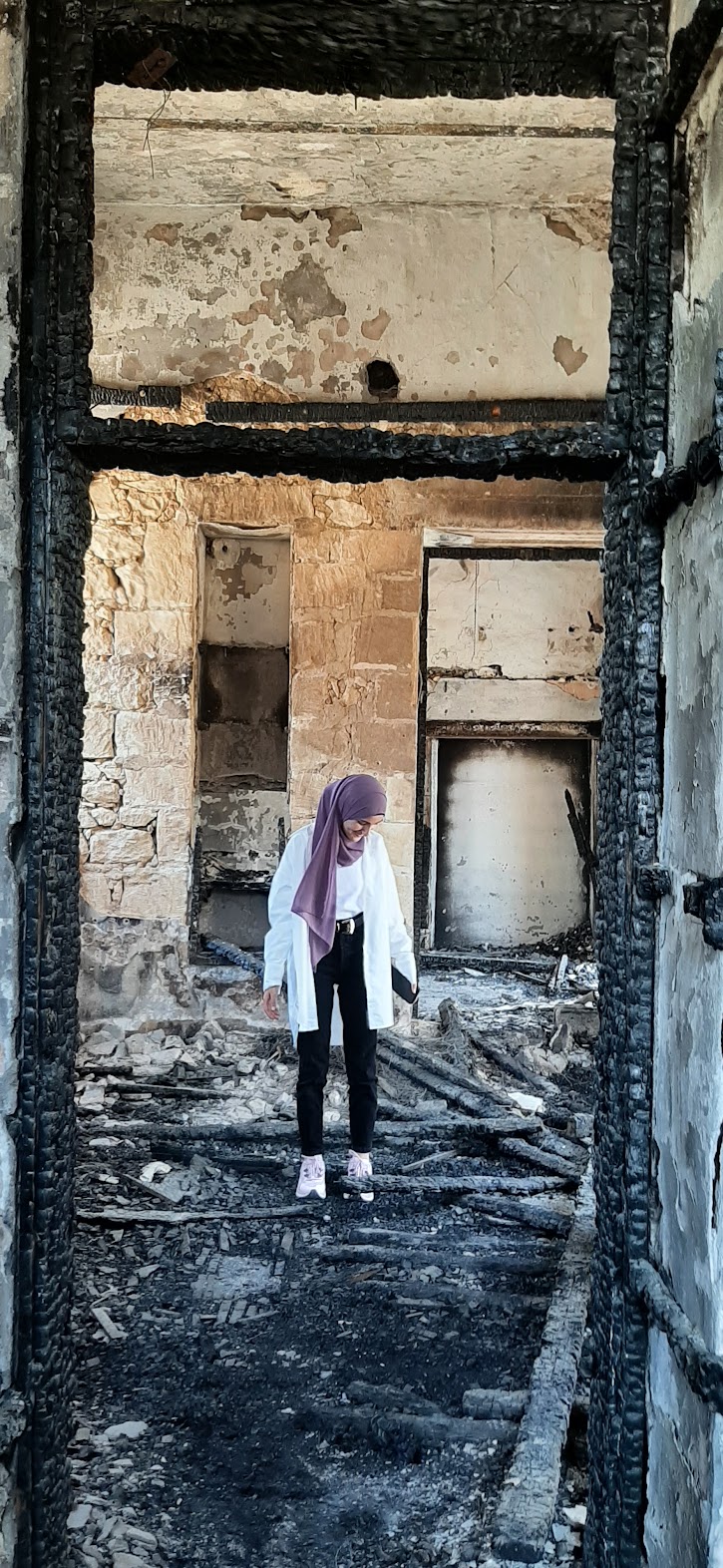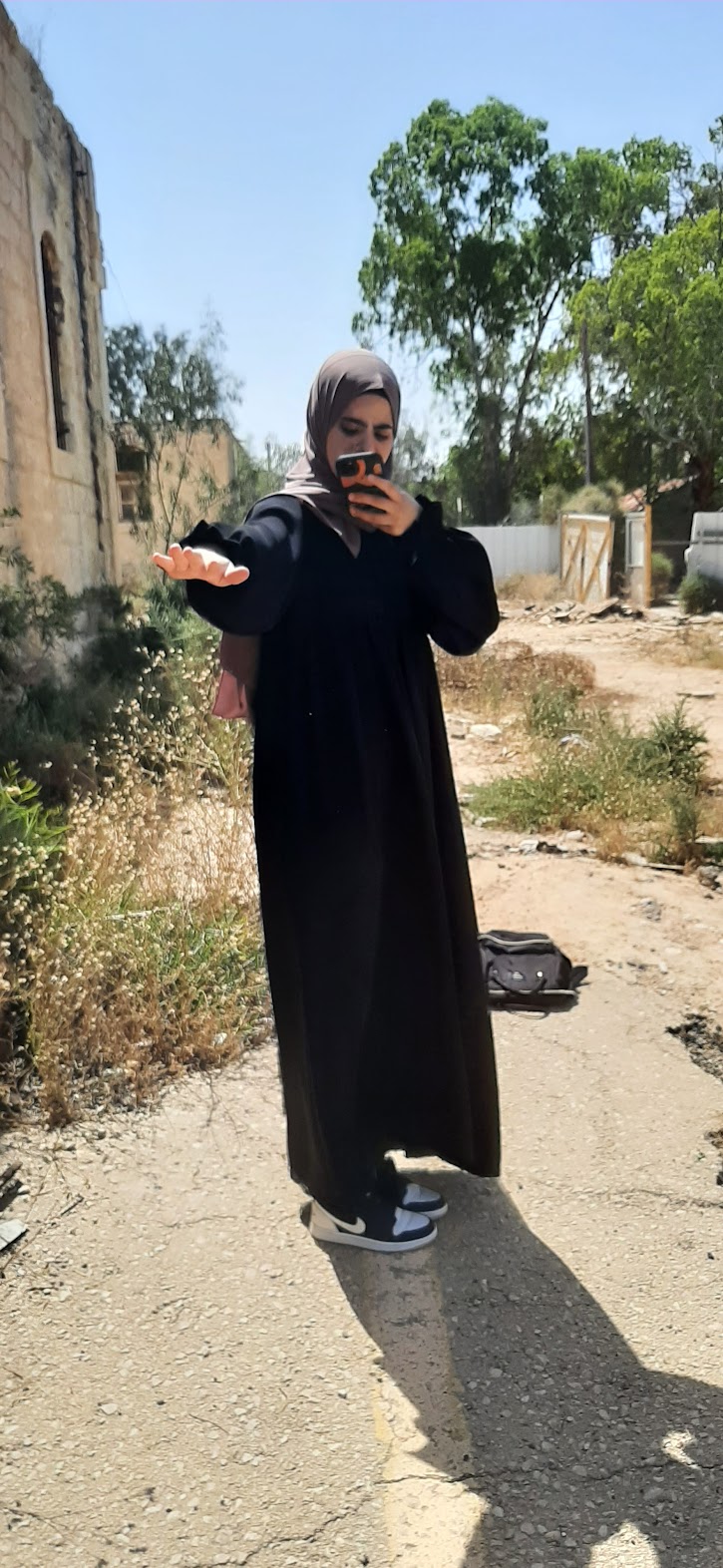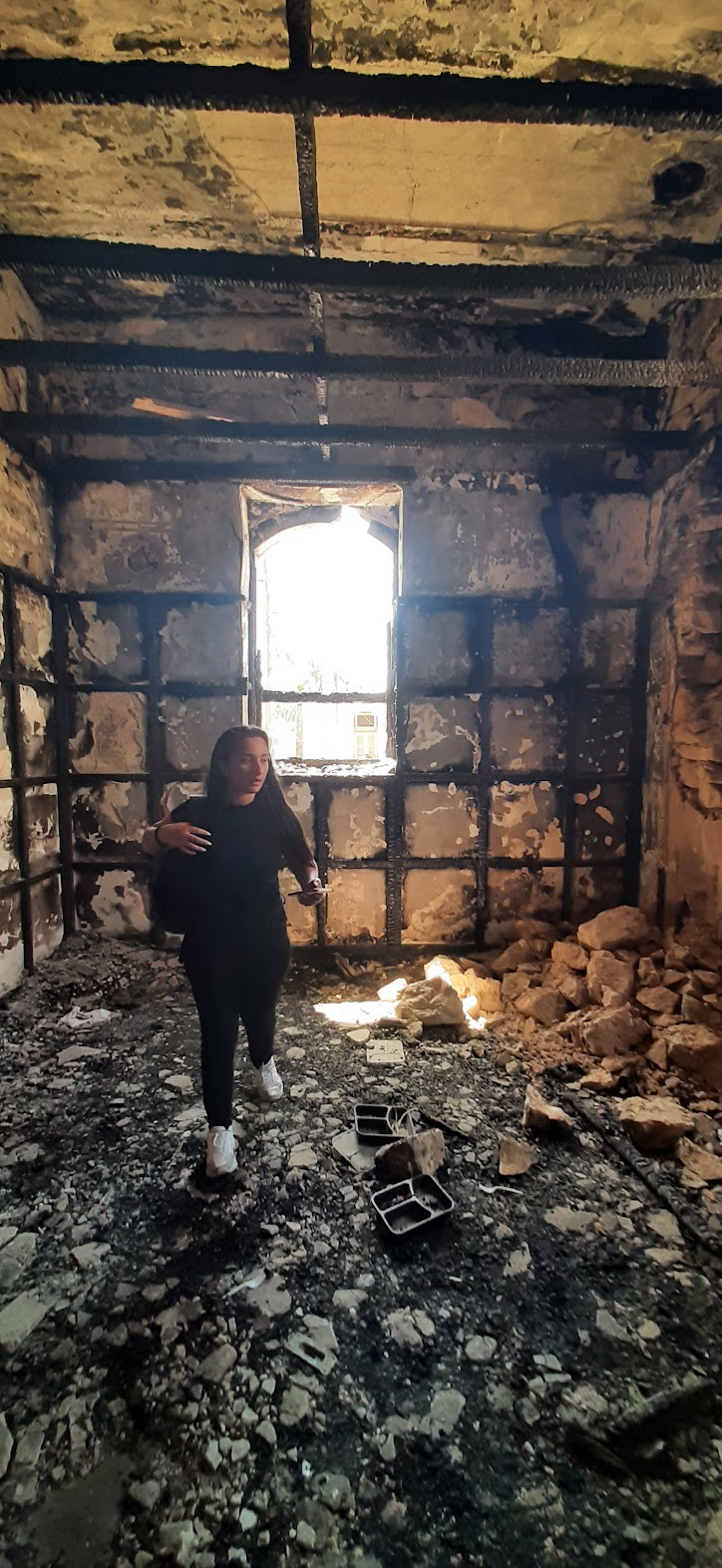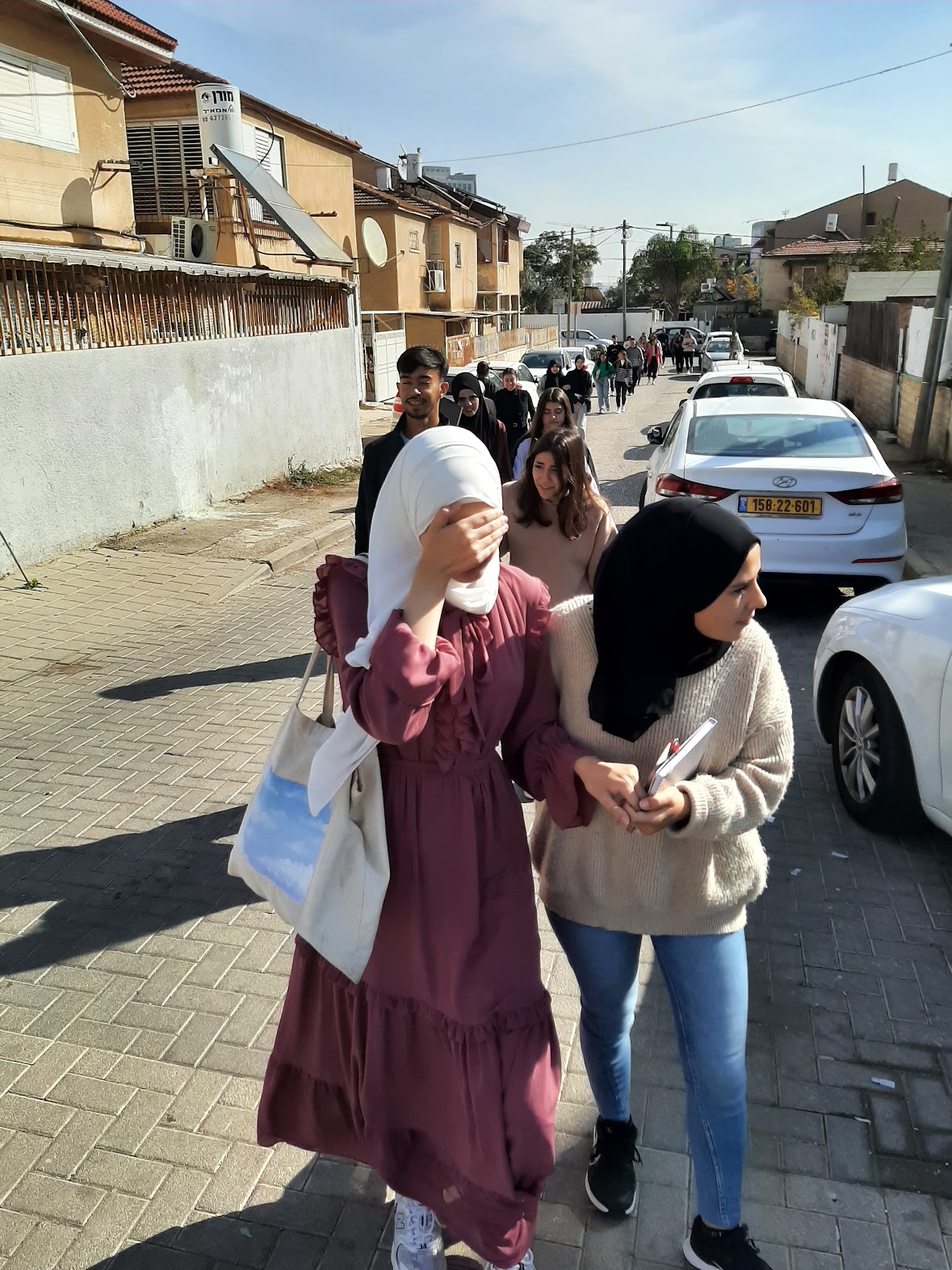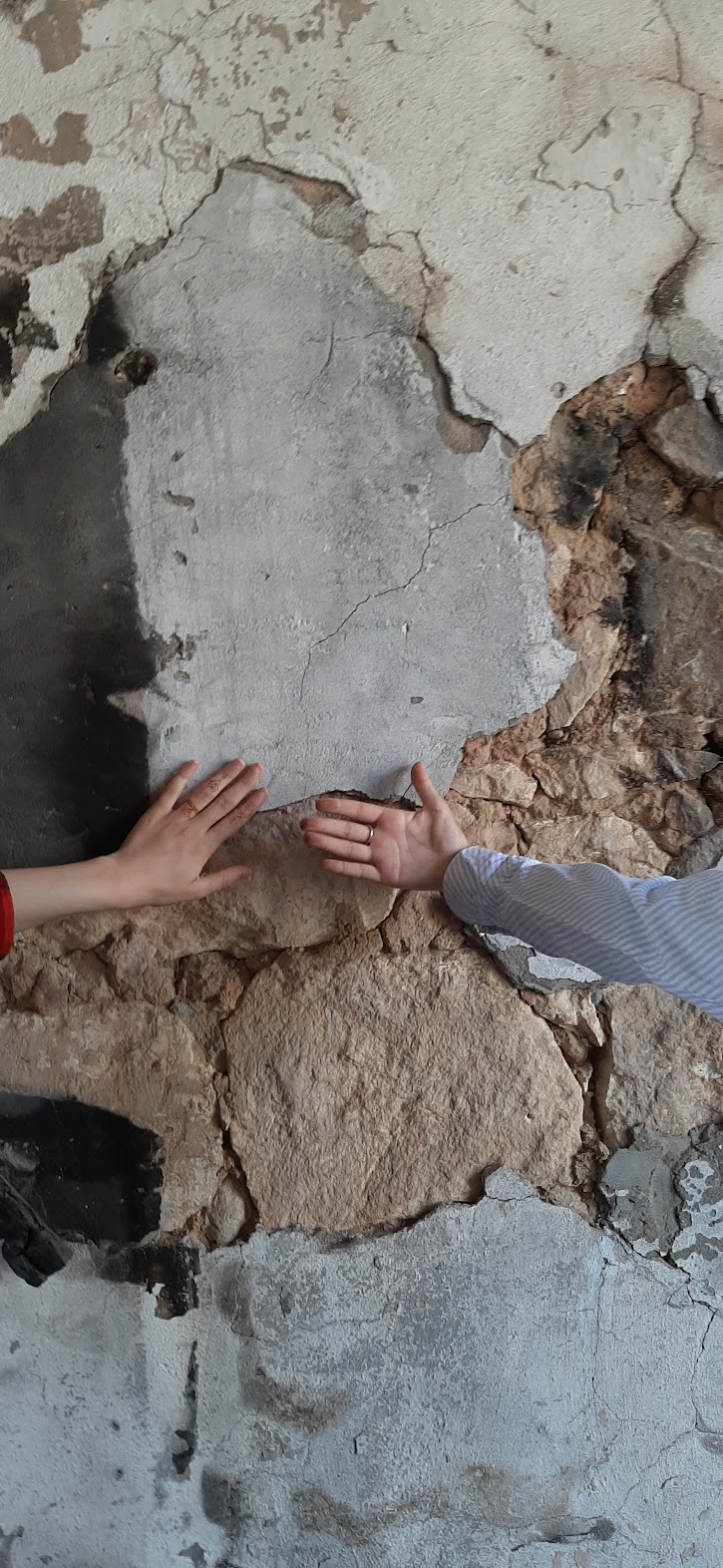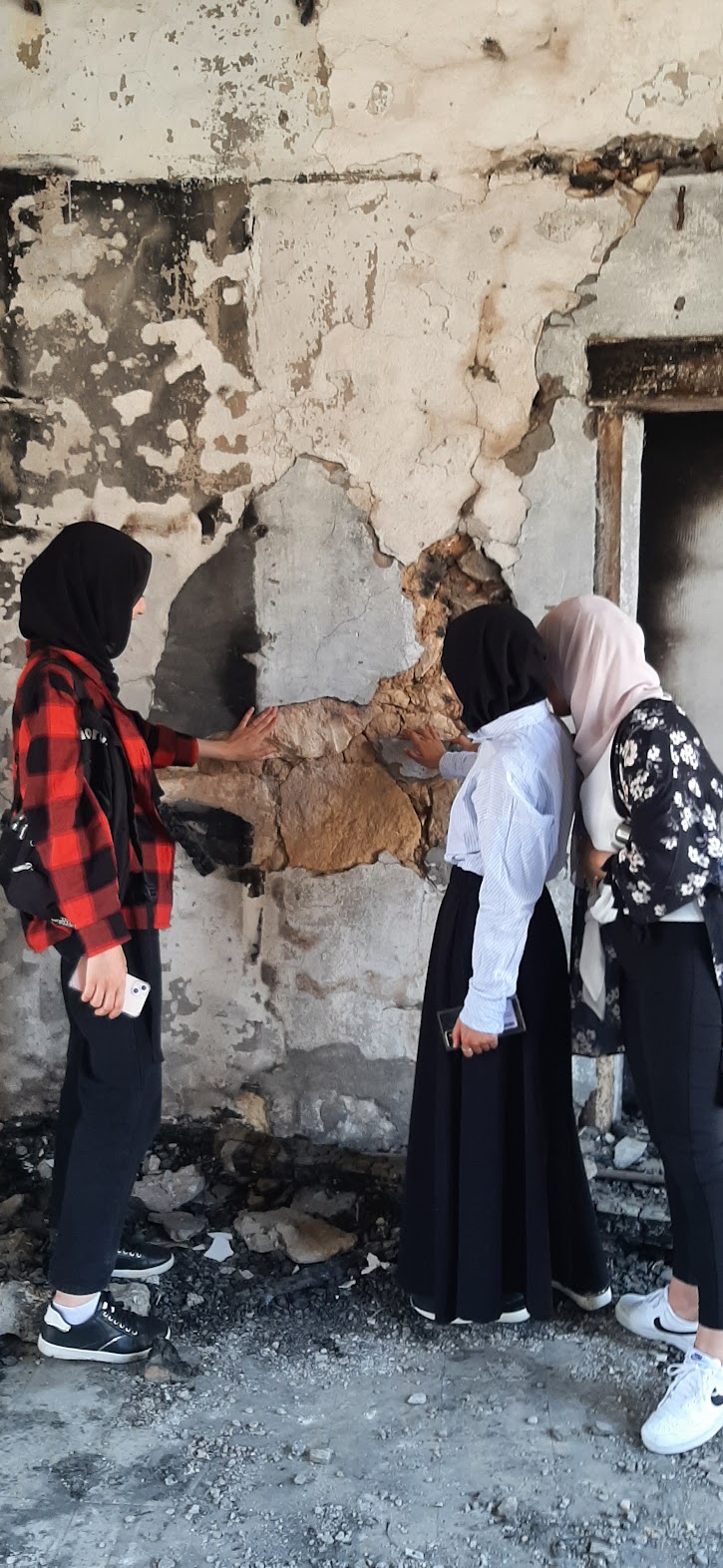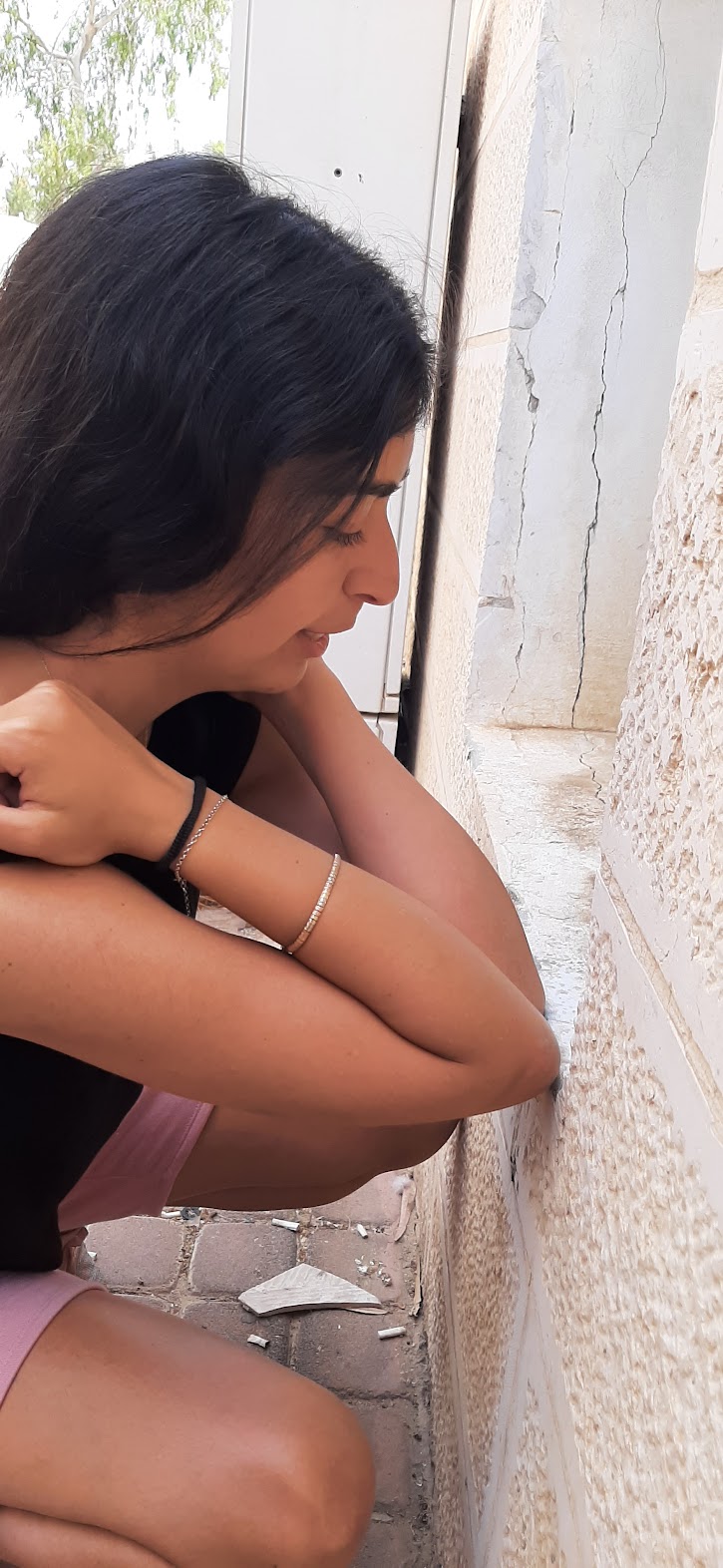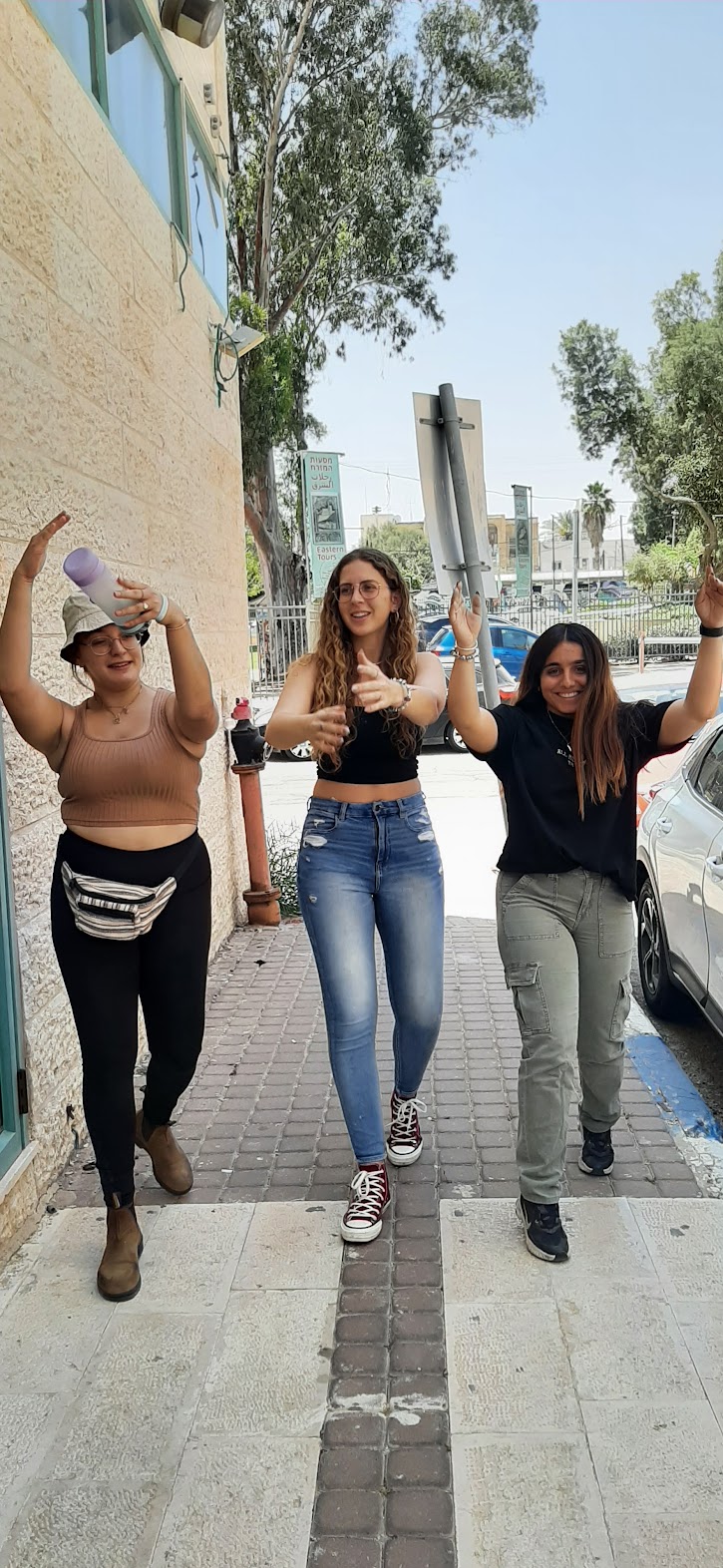In Progress:
Histories of Contact: Embodied Methodologies for Site Analysis
with Georgia Hablutzel
Our need to develop new critical tools for reevaluating contested built environments has never been more evident than in the current moment of multiple crises. The proposed paper defines a series of embodied methodologies developed by an artist-architecture research collaborative and their group of female Palestinian Bedouin students, illustrating how somatic knowledge can serve as a means of conducting site research.
A set of embodied listening and performance-based practices will be approached as a critical reading method to expose the temporalities of current physical, political, material, and historical entanglements present in the Built Environment. Through temporal and movement-based performative exchanges, we aim to uncover the systems that organize and govern movement, while also exploring the potential of anticipatory forms in prefigurative politics as an enduring space for productive interruptions.
Situated in the highly contested territory of the Naqab Desert, Palestine/Israel, a series of situated workshops performed by Architectural Students, from regional Palestinian cities and towns, have been used to explore the possibility of the body as an instrument to uncover readings of the city of Beer Sheba. Established in 1877, Beer Sheba was conceived as part of the Ottoman Empire’s ambition to sedentarize the indigenous tribal Bedouin population in the region. This demonstration of sovereign power in the region laid the groundwork for subsequent experiments in sedentarization, as governing powers transitioned from the Ottoman Empire (1900) to the British Mandate (1917) and eventually to the Zionist State (1948). Today, only fragments remain of Beer Sheva's original Ottoman masterplan, however, what is present is the ever-adapting material palimpsest of continuous experiments in settling.
The research challenges traditional instruments of site research, such as surveys, through the lens proposed by Sarah Ahmed, who argues that "no thing" or "no body" possesses characteristics that exist prior to contact with others.“It is not that a subject ‘gives’ meaning and value to others. Rather, subjects as well as objects are shaped by contact. Such forms of contact do not make something out of nothing: subjects as well as objects ‘accrue’ characteristics over time.” Through performance-based practices materialized via temporal and somatic interventions, the students were able to provoke and construct a space for civic dialogue while mediating inherited historical and contemporary power dynamics between body and city.
Early stage research
